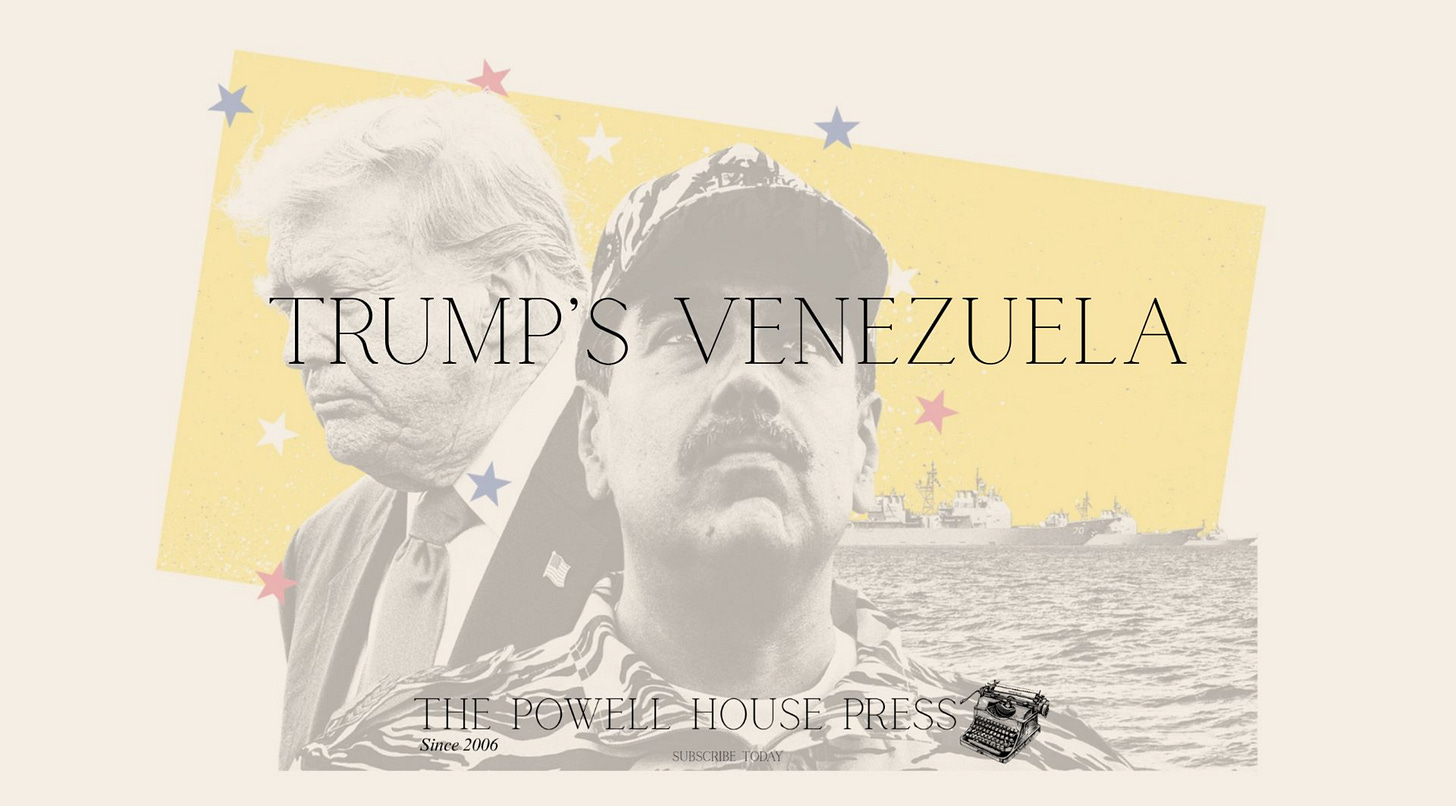Trump’s Up To Something in Venezuela
Twenty-seven dead. No trials. No evidence. No consequences. Just Trump's manifest destiny and a Venezuelan opposition leader promising to hand over the world's largest oil reserves to America
Trump said he wanted Greenland and wouldn’t rule out taking it by force. He said Canada should become the 51st state. He declared the Panama Canal should be “taken back.” In his second inaugural address, he invoked “manifest destiny,” announcing that the United States would “consider itself a growing nation—one that increases our wealth, expands our territory.”
Then in September, the U.S. military began blowing up boats in the Caribbean, killing 27 people across five strikes. Trump claimed they were drug traffickers. He provided no evidence. Congress was denied unedited video. The administration couldn’t answer basic questions about legal authority. At least one boat had turned around and was heading away when it was destroyed. Some of the dead were fishermen. Two were citizens of Trinidad and Tobago.
No trials. No due process. No proof. Just executions in international waters, justified by claims the administration refuses to substantiate.
This is how democracies die—not with dramatic c…



